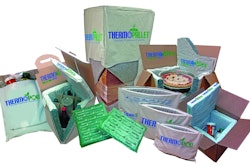This content was written and submitted by the supplier. It has only been modified to comply with this publication’s space and style.
The £0.4m grant from the Technology Strategy Board (TSB), the UK’s innovation agency, and the Biotechnology and Biological Sciences Research Council (BBSRC) has been earmarked to help fund the development of Prokarium’s Vaxonella® oral vaccine delivery platform as well as two specific vaccine candidates.
Prokarium, a biotechnology start-up company based in Keele, Staffordshire and London, UK, develops cutting-edge genetic technologies to engineer immune-cell-targeting bacteria that express vaccines from within the body, creating the next generation of safe, affordable, oral vaccines. The grant will allow Prokarium to complete preclinical work on its first pipeline product Typhetec®, a dual oral vaccine against typhoid and ETEC, a major cause of diarrhoea. In addition, this grant will enable R&D to commence on a novel vaccine against Clostridium difficile, a major cause of colitis in the elderly.
Currently there are no vaccines against ETEC, a bacterium responsible for between 300,000 and 500,000 deaths annually, including children in developing countries. In addition, every year more than 10 million travellers contract diarrhoea caused by ETEC, which costs €200m annually in medical resources within the EU, and accounts for €450m in lost productivity. Similarly, there is no vaccine against C. difficile, responsible for approximately 900,000 cases of colitis a year across Europe and North America, with an estimated cost of care burden of over $7 billion.
With this funding from the TSB and BBSRC, Prokarium and the University of Birmingham will be able to test candidates that have the potential to be developed into oral vaccines for both the developed and emerging markets.
Carl-Johan Spak, CEO of Prokarium, said:
“We are very pleased that the TSB and BBSRC awarded our consortium this funding, which will not only bring us closer to creating the next generation of oral vaccines against two very important diseases, but also recognises Prokarium as an innovative synthetic biology company.”
Prof Ian Henderson, University of Birmingham adds:
"Prokarium's Vaxonella platform will revolutionise the way we protect people from infectious and non-infectious disease. I am excited by the opportunity to assist Prokarium in the development of an ETEC vaccine based on Vaxonella. Success in this important endeavour will give the gift of life to millions of children who would otherwise suffer or die from this devastating disease"






















